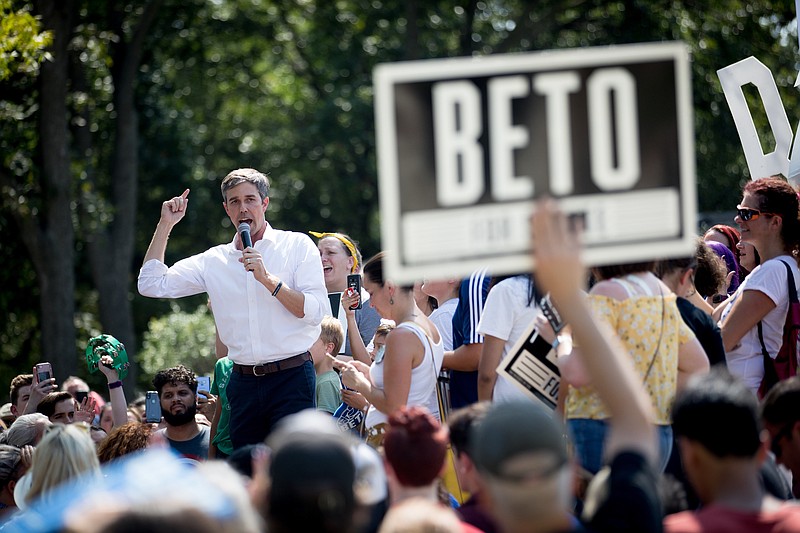Democrats are too "woke" for their own good, or so goes the argument.
"Today's progressivism is more or less a secular form of religion with its own high standards," Matt Lewis, a conservative columnist, wrote this spring. "Eventually," he concluded, "the revolution devours its own." Bill Maher, host of HBO's Real Time, urged Democratic presidential candidates to "Get out of Woke-ville, for a day."
"Wokeness," in this rendering, is an overly rigid commitment to identity politics and social justice ideology. And in their zeal, these woke Democrats are pushing the Democratic Party away from the voters it needs to beat President Donald Trump in 2020.
If this were actually true, you would expect real traction for the wokest candidates in the Democratic presidential race. But it's been just the opposite. The woke candidates have been the weakest, electorally speaking, and the defining attribute of the Democratic primary has been a preoccupation with the voters that put Trump in the White House.
Sen. Kirsten Gillibrand of New York centered her campaign on racial justice and the fight against sexual assault. Fluent in wokeness, Gillibrand hoped to win the most progressive, social justice-minded Democrats. But she never broke away from the pack and dropped out at the end of the summer.
Beto O'Rourke, the former representative of Texas' 16th congressional district, took a similar approach, barnstorming the country as the wokest of woke Democrats. He, like Gillibrand, hoped to win the most culturally liberal Democrats. Instead, his support shrank. He dropped out at the beginning of November.
Sen. Kamala Harris of California was not as openly woke as some of her rivals - although she did voice support for reparations - but as the daughter of immigrants from India and Jamaica, she embodied the "Great Awokening" of the Democratic electorate. Harris made headway - at first. But she wasn't able to capitalize on her early success. Last week, she left the race.
None of this is dispositive. The Democratic Party might still be too woke for its own good. But the evidence for that isn't in the primary campaign. A former vice president, Joe Biden, known for his centrist politics and blue-collar affect, leads the field. His nearest rivals, Sens. Bernie Sanders of Vermont and Elizabeth Warren of Massachusetts, support social justice politics, but they've centered their campaigns on inequality and corruption.
Yes, the failure of explicitly woke campaigns is a function, in part, of moderate and conservative voters in the Democratic coalition, including African-Americans and Latinos. But if the Democratic Party is as woke as critics say, the race should be able to sustain one or two woke candidates. The fact that it can't should undermine, or at least temper, the idea of a "Great Awokening" transforming Democratic politics. At the very least, it shows that Democrats are far more concerned with beating Trump than elevating woke ideology.
With all of that said, I want to make a point about the term "woke" itself. These days, it's a term of abuse - a shorthand for puritanical political correctness, a pejorative wielded against liberal elitism. But its origins are in African-American vernacular, where it referred to a broad awareness of anti-black oppression. The metaphor of being "awake," for example, drives Martin Luther King Jr.'s 1965 speech "Remaining Awake Through a Great Revolution." Like so much other black slang, it's been borrowed and diluted and worn down, so that the original meaning has faded from view. That meaning, however, is still worthwhile.
Puritanism is not useful for politics or governing. But a broad awareness of oppression - of the ways this country does not work for many of its citizens - is vital. To the extent that Democrats have that awareness, they should not shy away from it.
The New York Times
